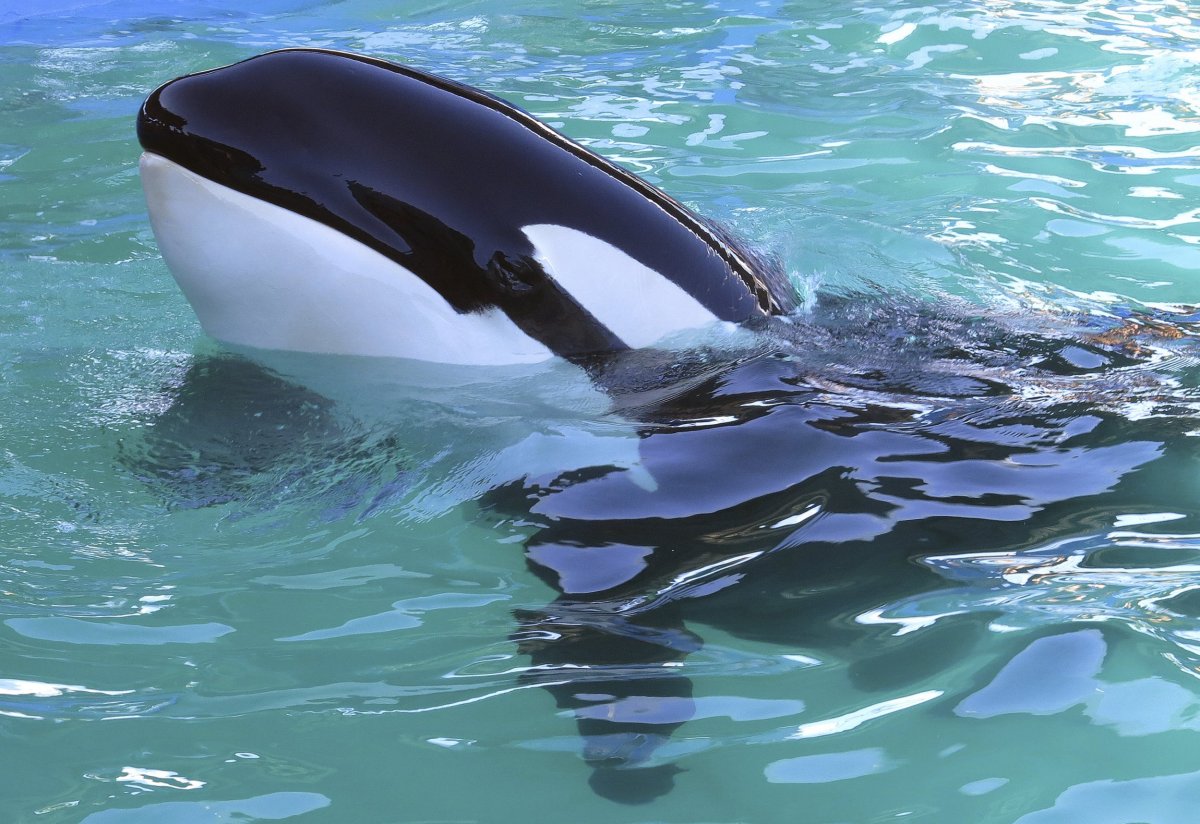Update | This story has been updated with information about an orca that has been observed barking like a seal.
It isn't hard to talk to an orca, but it's truly something when the orca speaks back to you.
New research, complete with haunting recordings, shows that orcas are shockingly good at imitating human speech. You can hear some of the sounds in the video above.
Whales of multiple species, including orcas, are highly social animals who use their voices to communicate. Different pods even have different cultures and accents. Like several species of birds and mammals, orcas learn to make sounds based on the sounds that they hear from others. But new research suggests they don't learn just from other orcas—they can imitate sounds of whatever species they like through their blowholes.

In research published today in the journal The Proceedings of the Royal Society B, scientists at the Complutense University of Madrid tested two orcas, a female named Wikie and her calf Moana. Wikie already knew the command "copy," where they asked her to imitate a sound that she had heard, and if she succeeded, they gave her fish or praise. They taught Moana the same command.
The researchers taught the orcas to copy orca commands, which they did with ease. Then they introduced human sounds, like "hello," "ah ah" (laughter) and "bye-bye."
Amazingly, the orcas were able to make similar sounds. While killer whales are used to high-pitched howls, clicks and trills, Wikie and Moana could imitate human words with, in some cases, astounding clarity.
In other cases, their accent was quite thick, but on listening to the recordings, you can tell that their inflections are spot-on. Visual illustrations of the recorded sounds showed that the "bursts" of sound that they made closely matched the bursts in the sound that they were hearing.
The researchers used software to figure out how similar the orca sound was to the sound that the orcas had heard, whether it was the sound of another orca or of a human. They were generally better at imitating orca sounds, but not in all cases. Of the human sounds, they were best at imitating "Amy," "hello" and "ah ah," but they struggled with "one, two," "one, two, three" and "bye-bye."
Cetaceans like orcas and sperm whales are exceptionally good at learning to vocalize from the sounds that they hear. For example, one "bilingual" beluga who was moved to a tank with bottlenose dolphins eventually learned to speak more like a dolphin than another beluga.
In the past, people have found anecdotes of orcas imitating non-orca sounds. For instance, a paper in the journal Biology Letters describes an orca that learned to bark like a seal. However, this new research is the first controlled study on imitating orcas.
The new results show that orcas not only have different dialects between pods, but they have the incredible ability to learn to imitate sounds wherever they hear them.
So, it's OK if you don't speak whale. Whales can speak human well enough.
Uncommon Knowledge
Newsweek is committed to challenging conventional wisdom and finding connections in the search for common ground.
Newsweek is committed to challenging conventional wisdom and finding connections in the search for common ground.
About the writer
Kristin is a science journalist in New York who has lived in DC, Boston, LA, and the SF Bay Area. ... Read more
To read how Newsweek uses AI as a newsroom tool, Click here.








